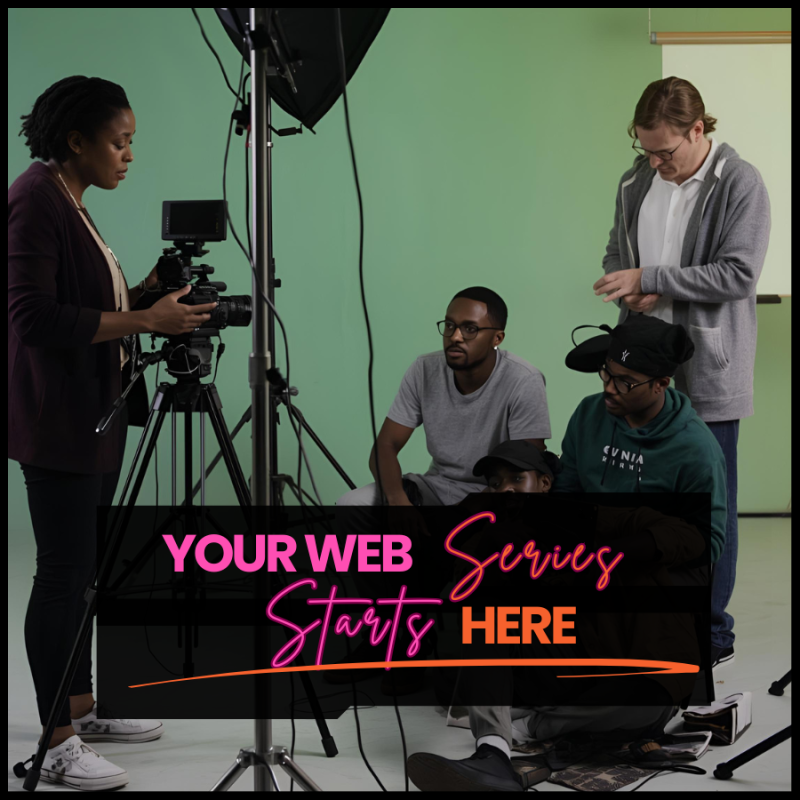Breaking into the film industry doesn’t always start with a feature. For many indie filmmakers, creating a web series is the smartest way to showcase their voice, connect with an audience, and build momentum. The beauty of a web series lies in its flexibility—it can be as short, scrappy, and experimental as you need it to be, while still proving your ability to tell compelling, episodic stories.
Here are 7 key steps to help you launch your first web series and make it stand out in a crowded digital landscape.
1. Define Your Core Concept
The internet is overflowing with content. To cut through the noise, you need a clear, attention-grabbing concept. Ask yourself:
- What’s unique about my story?
- Can I pitch the idea in one or two sentences?
- Who is the target audience?
Your hook doesn’t need to be flashy—it just needs to be memorable. A strong core concept gives your series identity and makes it easier to market.
2. Keep Episodes Sharply Written
Unlike traditional TV, web audiences don’t have the patience for 40-minute runtimes. Episodes that fall between 3–10 minutes often perform best online. This forces you to:
- Write tight scripts that deliver value quickly.
- Focus each episode around a single clear beat or conflict.
- Leave the audience wanting more.
Shorter episodes also make production easier and more cost-effective—a must for indie teams.

3. Develop Relatable Characters
Viewers return for characters, not just plot. In a web series, the characters are your brand. Make sure they:
- Have clear personalities and quirks.
- Face relatable conflicts or challenges.
- Grow over time, even in small ways.
Strong characters can carry your series even if the production values are modest.
4. Plan for Consistency
A web series thrives on rhythm—audiences expect new content regularly. That doesn’t mean you need a huge budget, but you do need a realistic plan.
- Decide on a release schedule you can stick to.
- Shoot multiple episodes in one block to save costs.
- Keep your visual and audio style consistent across episodes.
Consistency builds trust with your audience and gives your project a professional edge.
5. Use Accessible Locations
You don’t need elaborate sets. Many successful web series are shot in apartments, coffee shops, or outdoor spaces. Use what you have access to and get creative:
- Borrow equipment from local film co-ops or schools.
- Use natural light when possible.
- Record sound with an external mic, even if you’re filming on a phone.
Resourcefulness is a badge of honor in indie filmmaking—audiences value storytelling over glossy production.
6. Build Your Distribution Strategy
Don’t wait until your series is done to think about where it will live. Ask yourself:
- Will you release on YouTube, Vimeo, or a niche platform?
- Should you pitch to a streaming service after a few episodes gain traction?
- How will you promote—through social media, newsletters, or festivals that accept web series?
Your distribution strategy is just as important as your creative vision. A great series unseen is a missed opportunity.

7. Engage and Grow Your Audience
A web series is as much about community as it is about content. Treat your viewers like collaborators in your journey:
- Respond to comments and share behind-the-scenes updates.
- Encourage fan art, memes, or watch parties.
- Ask for feedback and incorporate audience reactions into future episodes.
An engaged audience won’t just watch your series—they’ll champion it.
Your first web series is both a creative experiment and a calling card. By focusing on strong characters, consistent production, and smart distribution, you can build a project that not only hones your skills but also grows your audience.
Strengthen Your Storytelling with Transformational Screenwriting

At the Independent Film Arts Academy (IFAA), we believe that even the smallest screen deserves powerful storytelling. A web series is your chance to prove you can create resonant, emotionally engaging stories—even on a tight budget.
📘 Dive deeper into the art of character development and narrative transformation with Transformational Screenwriting—a guide to crafting emotionally compelling stories that inspire outstanding performances.👉 Get your copy on Amazon today and start elevating your storytelling from the first page.

